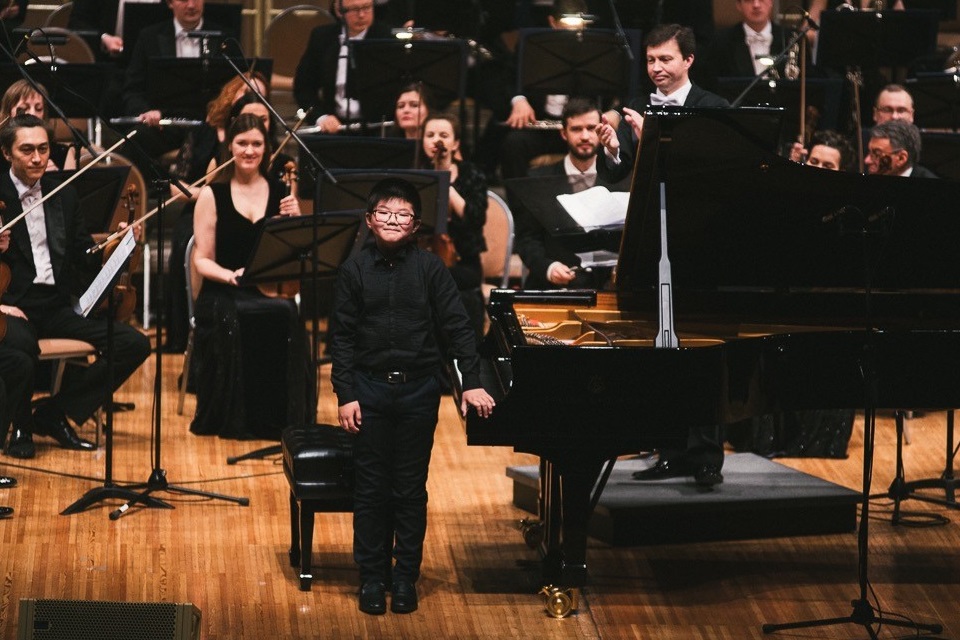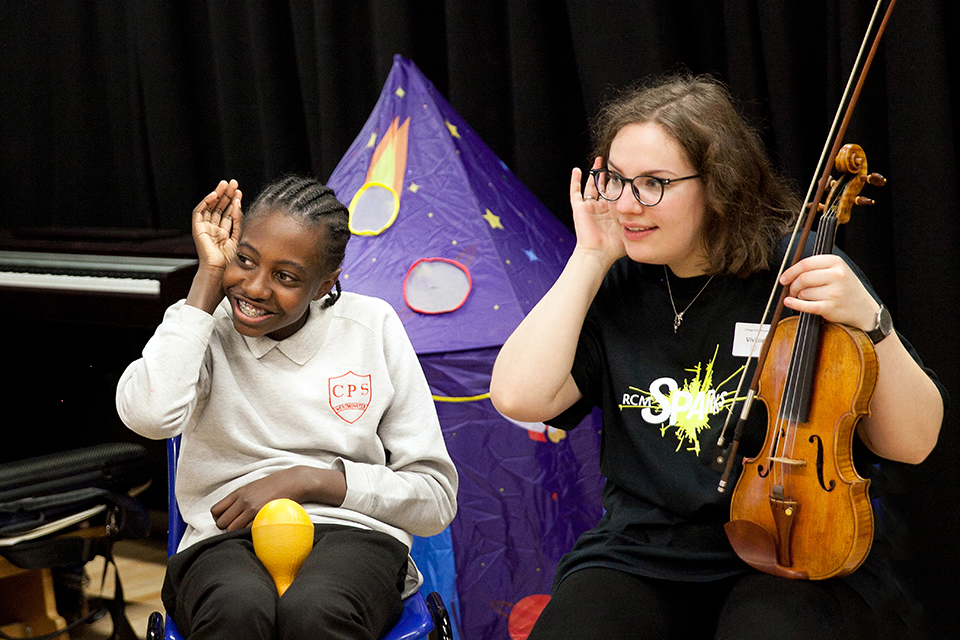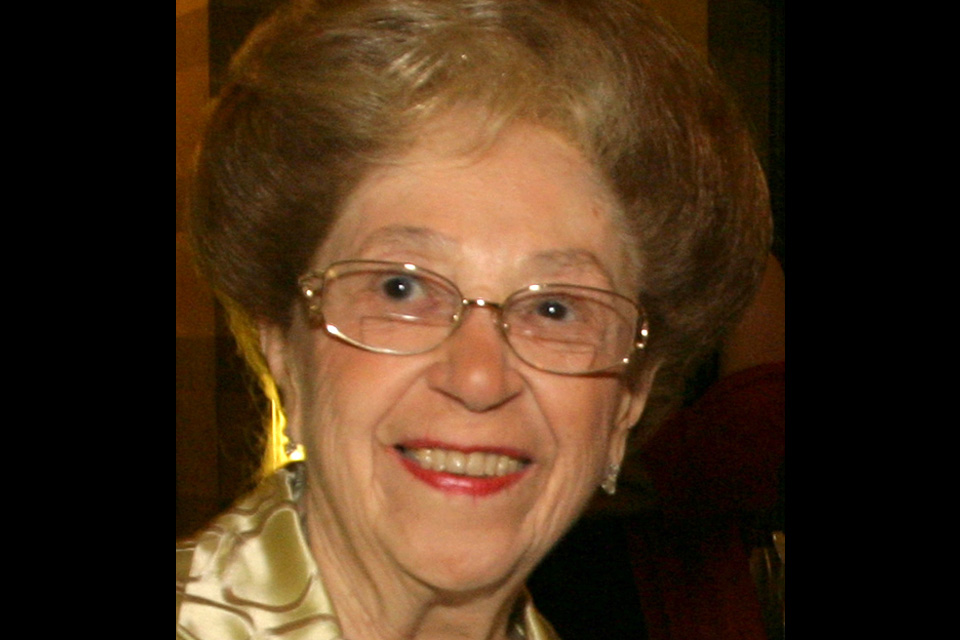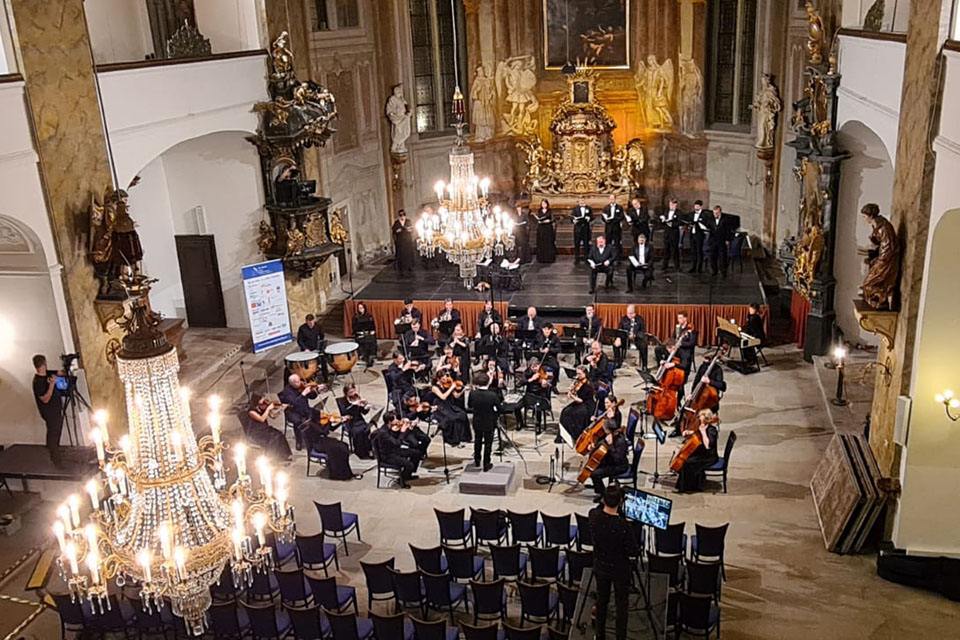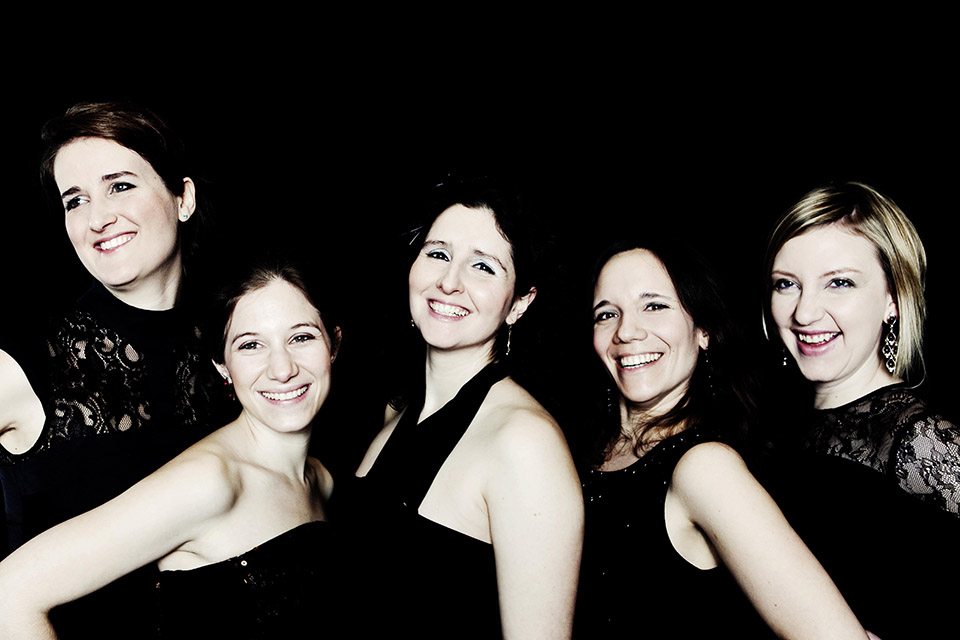Bright Sparks: How RCM Sparks drives positive social change by widening access to music education
Share #UpbeatOnline
At a time when children’s access to music education has never been more important, the Royal College of Music’s learning and participation programme, RCM Sparks, has been reaching out to young people and their families through innovative digital initiatives. Sparks offers access to music education with diversity and inclusivity at its heart.
[quote quote="…Music is not accessible in my son’s White City primary school. I hope Azeem goes on to learn how to play an instrument." author="Parent of RCM Sparks Get, Set, Play participant "]
Get, Set, Play is part of RCM Sparks’ innovative community programme that is just one of the free initiatives offered year-round to families from deprived neighbourhoods within the Tri-Borough Music Hub (TBMH) area. The TBMH is a local authority that aligns the councils of Kensington and Chelsea, Westminster and Hammersmith & Fulham with the Arts Council, Royal Albert Hall and RCM to provide music education to local children. Children have the opportunity to learn instruments, join a choir and experience the thrill of a live symphony orchestra. At the end of the programme, participants are offered a 'scholarship' scheme: subsidised music lessons or choir membership with the TBMH. RCM Sparks operates within this scheme to champion inclusivity and diversity in music education by providing opportunities for local children and families from disadvantaged socio-economic backgrounds.
RCM Sparks drives positive social change by giving at-risk children the opportunity to access the global language of music. Music participation in childhood is linked to higher academic achievement in all subjects, regardless of socio-economic factors. However, research has found that children from disadvantaged backgrounds are three times less likely to learn an instrument or play in a school ensemble than those from wealthier backgrounds. The Royal Borough of Kensington and Chelsea has the worst rate of income inequality of all the London Boroughs, with 37.3% of children living in poverty.
[image1]
The Covid-19 pandemic is only exaggerating such existing inequalities, as well as introducing countless further negative impacts on children, including academic disadvantages due to school closures, mental health challenges, increased stress and a loss of interaction with friends. The pandemic is widening social and economic divisions in our communities, and it is those who were more disadvantaged to begin with who are suffering the most.
In its efforts to combat this inequality, RCM Sparks leapt into action when lockdown first began in spring 2020. All activity was moved online and the Sparks team launched a brand-new digital presence that included downloadable resources, videos and interactive courses. This new webpage had over 4,000 page views between March and July 2020. The ‘Mini Sparks’ programme continued with ‘song-bundles’ available online and families on the Sparks Juniors course enjoyed weekly live online workshops with the RCM Junior Department teaching team. Get, Set, Play moved to live interactive weekly workshops, and its six-week programme picked up again from 20 February 2021. With a mind to the future, the Sparks team also helped to produce a recovery curriculum framework to facilitate and encourage educators’ use of music in the classroom to help children deal with the impact of the pandemic.
[quote quote="My favourite thing about Get Set Play Online was how brilliantly the lesson was facilitated and presented. It is by far the best Zoom course we’ve taken part in. I was worried at first because I’m not very tech savvy, but I learnt how to make a video and work as a team with my daughter. We managed to join in easily and were kept entertained and engaged throughout. Most importantly, we had fun!" author="Parent of a Sparks online participant"]
The importance of digital innovation in allowing RCM Sparks to continue providing underrepresented community groups access to music education during this extraordinarily challenging year cannot be overstated.
[image2]
Sparks has a strong outreach record. The extent of the Sparks impact across the year 2019-20 tells a powerful story about how many connections Sparks made pre-lockdown.
- RCM Sparks reached over 2,150 children in key neighbourhoods in person between September and March 2019-20.
- 61% of these participants were from underrepresented groups.
- Approximately 380 pupils from 6 schools received pre-concert workshops in the Autumn and Spring terms.
In the same period, the RCM Sparks orchestral training programme gave 1,101 schoolchildren the opportunity to attend concerts at the RCM during the Autumn 2019 and Spring 2020 terms, with school representation from 16 different settings throughout the TBMH and beyond.
[quote quote="I am utterly non-musical, so to see my son thrive and enjoy the music environment, one that I could never introduce to him, was something very special for both of us. I saw him communicate in a way he has not done before which was fantastic." author="Parent of a Mini Sparks participant"]
Sparks doesn’t just have a positive impact on its participants, but on its facilitators too. RCM students are encouraged to help run the programme, with one commenting: ‘Sparks projects are so well thought through… It really helps you to grow as a music educator, a musician and as a person.’
In the 2019-20 academic year alone, 164 RCM students and graduates were given dedicated training in workshop delivery, while 120 RCM students are set to undergo preparation to host lunchtime concerts. As a result of the RCM’s partnership with the TBMH, 31 RCM students and graduates are currently employed by the Hub following their work with RCM Sparks.
The far-reaching impact RCM Sparks has on the local community, students, music education and culture at large cannot be overestimated. Access to music faces its greatest challenge in living memory as a result of the pandemic. The RCM Chairman, Lord Black of Brentwood summed this up recently, saying: ‘There has been a shocking collapse of music education in our schools and the need for fundamental policy change is even more important after COVID-19.’
[image3]
Music should not be a privilege and we can all benefit from a thriving cultural sector in which everyone can participate. Under-served communities, especially those suffering the effects of inequalities due to race, deserve the same open access to music education that can uplift childhoods. By removing the cost of access to music-making, RCM Sparks is already breaking down cultural barriers and strengthening social unity. Most importantly, it is giving less fortunate children a way to express themselves, to unleash their creativity and to be inspired and uplifted.
Find out more about Sparks and all its digital activities here.


